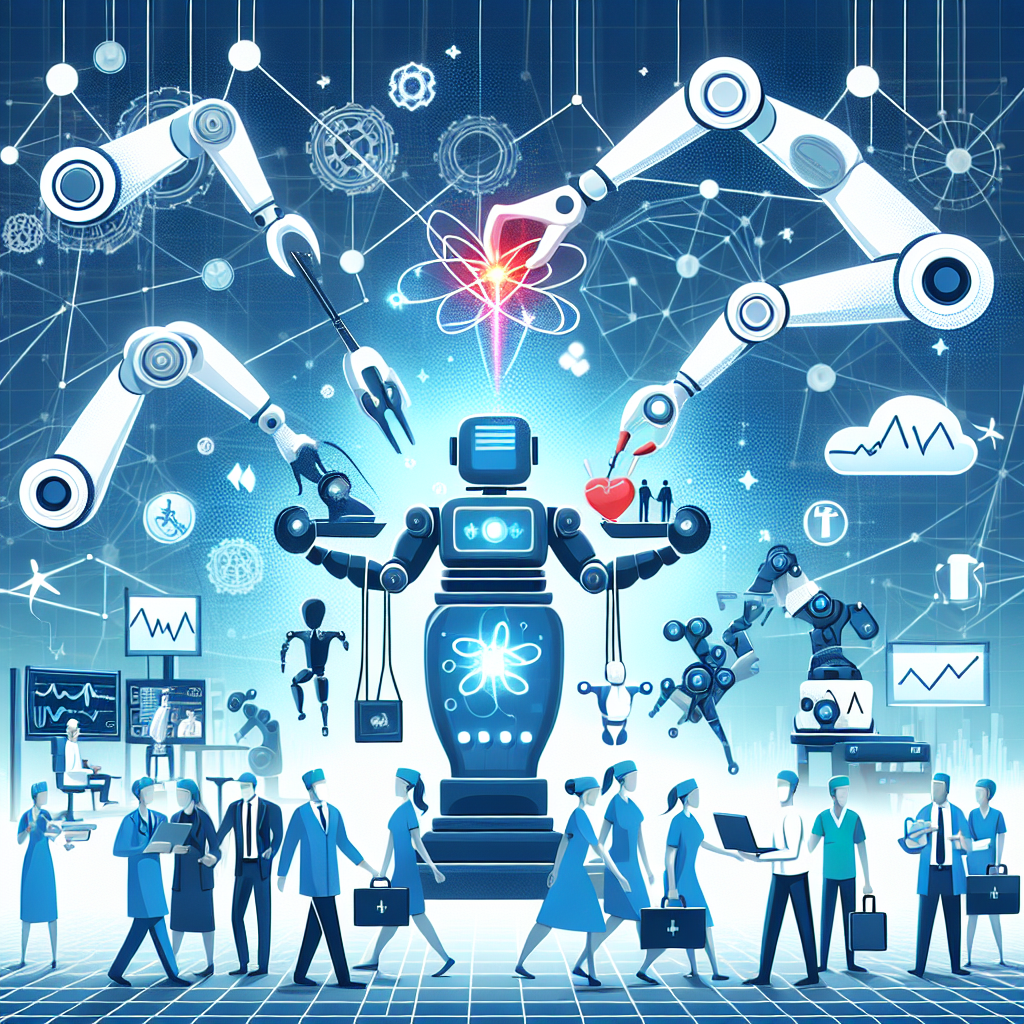The Future of Work: How AGI is Impacting Jobs and Industries
Artificial General Intelligence (AGI) is a term that refers to machines that possess human-like cognitive abilities, such as reasoning, problem-solving, and learning. AGI is a rapidly developing technology that has the potential to revolutionize the way we work and live. As AGI becomes more advanced, it is expected to have a significant impact on jobs and industries across the globe.
In this article, we will explore the ways in which AGI is likely to impact the future of work, and how businesses and workers can prepare for these changes. We will also address some common questions and concerns surrounding the rise of AGI.
The Rise of AGI
AGI is the next frontier in artificial intelligence research, and many experts believe that it is only a matter of time before machines with human-like intelligence become a reality. AGI has the potential to automate a wide range of tasks that are currently performed by humans, from routine administrative tasks to complex decision-making processes.
Some of the key areas where AGI is expected to have a significant impact include:
1. Automation of repetitive tasks: AGI has the potential to automate a wide range of repetitive tasks, such as data entry, customer service, and basic accounting. This could free up human workers to focus on more strategic and creative activities.
2. Improved decision-making: AGI systems are able to analyze vast amounts of data and make complex decisions in a fraction of the time it would take a human. This could lead to more efficient and effective decision-making in a wide range of industries, from finance to healthcare.
3. Enhanced creativity: AGI systems are also capable of generating creative solutions to complex problems. This could lead to new innovations and breakthroughs in fields such as design, engineering, and scientific research.
4. Personalized customer experiences: AGI systems can analyze customer data and preferences to deliver personalized experiences and recommendations. This could help businesses to build stronger relationships with their customers and drive sales.
5. Increased efficiency and productivity: AGI systems have the potential to streamline workflows and improve efficiency across a wide range of industries. This could lead to cost savings and increased productivity for businesses.
Challenges and Opportunities
While the rise of AGI presents many opportunities for businesses and workers, it also comes with a number of challenges. One of the key concerns surrounding AGI is the potential impact on jobs and employment. As machines become more capable of performing human-like tasks, there is a risk that many jobs could be automated, leading to widespread unemployment and economic disruption.
However, experts believe that the rise of AGI is also likely to create new opportunities for workers. As machines take on more routine and repetitive tasks, human workers will have the opportunity to focus on more strategic and creative activities. This could lead to the creation of new job roles and industries that do not currently exist.
Businesses will also need to adapt to the rise of AGI in order to remain competitive. Companies that are able to harness the power of AGI to automate tasks, improve decision-making, and deliver personalized customer experiences will have a significant advantage in the marketplace. Businesses that fail to adapt to the rise of AGI may find themselves falling behind their competitors.
Preparing for the Future
In order to prepare for the impact of AGI on jobs and industries, businesses and workers will need to take proactive steps to adapt to these changes. Some key strategies for preparing for the future of work include:
1. Upskilling and reskilling: Workers will need to develop new skills in order to thrive in a world where AGI is prevalent. Businesses can help their employees to upskill and reskill by providing training and development opportunities.
2. Embracing creativity: As machines take on more routine tasks, human workers will need to focus on activities that require creativity and critical thinking. Businesses can encourage creativity by fostering a culture of innovation and experimentation.
3. Embracing change: The rise of AGI is likely to bring about significant changes in the way we work. Businesses and workers will need to be flexible and adaptable in order to thrive in this rapidly changing environment.
4. Investing in technology: Businesses that invest in AGI technology and tools will be better positioned to take advantage of the opportunities that it presents. Companies should explore how AGI can be used to automate tasks, improve decision-making, and deliver personalized customer experiences.
Frequently Asked Questions
Q: Will AGI replace all human jobs?
A: While AGI has the potential to automate many tasks that are currently performed by humans, it is unlikely to replace all human jobs. Instead, AGI is likely to lead to the creation of new job roles and industries that do not currently exist.
Q: How can businesses prepare for the rise of AGI?
A: Businesses can prepare for the rise of AGI by investing in technology, upskilling and reskilling their employees, and embracing creativity and innovation.
Q: What are the ethical implications of AGI?
A: The rise of AGI raises a number of ethical concerns, such as the potential for bias in decision-making algorithms and the impact on jobs and employment. Businesses and policymakers will need to address these ethical considerations in order to ensure that AGI is used responsibly and ethically.
In conclusion, the rise of AGI is likely to have a significant impact on jobs and industries across the globe. While there are challenges associated with the rise of AGI, there are also many opportunities for businesses and workers to thrive in this rapidly changing environment. By taking proactive steps to adapt to the rise of AGI, businesses and workers can prepare for the future of work and harness the power of this transformative technology.

